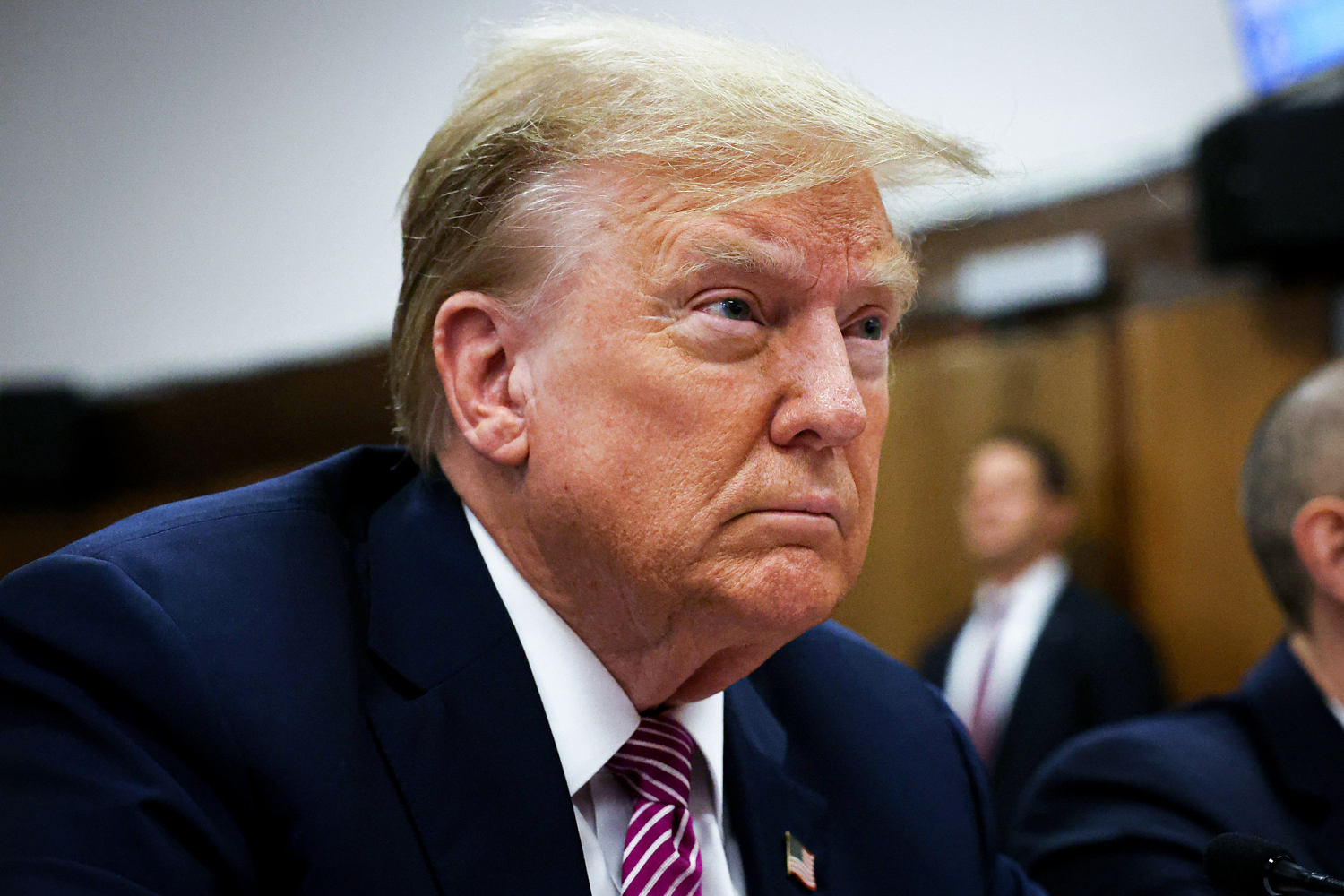Trump’s defense used a jury consultant to research and help them select jurors


The New Yorkers who could decide Donald Trump’s fate were vetted in real time on Friday by the former president’s defense team.
As the potential alternate jurors were being questioned by prosecutors seeking to convict Trump of illegally paying hush money to a porn star, and by defense attorneys trying to keep him out of jail, a jury consultant hired by Trump’s legal team was watching the candidates closely for telltale signs of possible bias while simultaneously feeding the defense attorneys her impressions.
Meanwhile, other jury consultants say, it is likely that a team of researchers working with the jury consultant were doing social media and other online searches to fill out the picture of every potential juror and sending that information to Trump’s lawyers in the courtroom.
“All this has to happen relatively quickly,” said veteran jury consultant Jo-Ellan Dimitrius of Dimitrius & Associates, who has been following the case and identified the firm working for Trump as Magna Legal Services.
The Philadelphia-based firm did not respond to a call from NBC News but court records show that Magna served as Trump’s jury consultant when was ordered to pay $83.3 million in damages to writer E. Jean Carroll for defaming her in 2019.
It was not immediately clear if the Manhattan District Attorney’s office used its own jury consultant to vet jurors and a spokesperson for the agency did not return numerous phone calls from NBC News.
By midday, jury selection had been completed and Trump’s first trial was heading for opening arguments.
Using jury consultants for vetting has become a fairly common practice.
“In my experience, there’s usually a consultant sitting behind the lawyers with a laptop who is feeding information to the lawyer doing the questioning of jurors,” Dimitrius said. “They usually have the home office doing the social media checks and other searches because the primary role of the consultant in the courtroom is to listen and watch the jurors and give feedback to the lawyers.”
Sometimes the background checks of potential jurors are being done even before the questioning begins, Dimitrius said.
“Generally on the morning of jury selection you get a list of potential jurors,” she said. “So we will take an iPhone photo of the list and send it back to the office where they’ll start their searches.”
Tampa-based jury consultant Michael Boucher of TCS, who has worked on a number of high-profile cases in New York City, like former Alaska Gov. Sarah Palin’s failed libel case versus the New York Times, echoed Dimitrius.
“In a case like this, we would set up a laptop on the podium and use a messaging app to stay in contact with the lawyers questioning the jurors,” Boucher said. “Not only are you feeding the lawyer information, you are finding on the jurors online, you’re trying to help guide the lawyer asking the questions. Lawyers, at times, sometimes get too far into the weeds and they need assistance so they can come up with follow-up questions.”
At the same time, Boucher said, “We’re watching the reactions of the other jurors waiting to be questioned and feeding that information to our legal team. That way, when the next potential juror steps up we already have a sense of where they stand.”
Boucher said in his experience Manhattan jury pools tend to be sophisticated, well-educated and thoughtful. But cases involving polarizing figures like Trump or Palin “sometime attract what we call ‘motivated jurors,’ with strong feelings either for or against” them.
“It’s very hard to find anybody who doesn’t have an opinion about Trump,” he said.
NBC News Legal Analyst Danny Cevallos, an attorney who practices in New York and elsewhere, agreed.
“In virtually every other case in the world, there’s not a strong chance that the jurors have tweeted about the defendant or posted on social media,” Cevallos said. “This is the rare one-in-a-million case where there’s a good chance all of us have retweeted or tweeted something about Donald Trump.”
Renato Stabile, managing director at Dubin Research & Consulting in New York City, said the ability to track social media has revolutionized the way juries get picked — and how jury consultants do their jobs.
“Before you just had to rely on what jurors said in court, and I think lawyers depended a lot more on their experience and gut, and maybe unfortunately, stereotypes that were either correct or incorrect and their past experience,” Stabile said. “Now you just get such a better sense of what jurors are really all about based on the articles they’re liking, what they’re reposting.”
Examining social media is “probably the most important part of jury selection,” said David Oscar Markus, a criminal defense attorney who, among others, successfully defended former Tallahassee mayor Andrew Gillum against charges of lying to the FBI.
“Lots of folks will come into court and say, ‘Yes, of course, I can be fair,’ or, ‘I have feelings about this one way or the other, but I can put all those aside and give the prosecution and defense a fair shake’,” Markus said. “But then, once you see posts, even if they’re old posts, they reveal sort of the jurors’ true feelings.”
Lisa Rubin and Corky Siemaszko reported from New York City, Megan Lebowitz reported from Washington, D.C.







